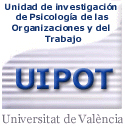actions for trust
En colaboración con la
Unidad de Investigación de Psicología de las Organizaciones y del Trabajo
de la Universitat de València
Valencia, 16 de febrero de 2006
Facultat de Psicologia



Objectives
The seminar discusses condition for trust on two levels.
a) First, general conditions that lie both within relationships and outside them, in institutional conditions. This may be useful in analyses of developing nations, for example, in the analysis of the institutional basis for trust.
b) Second, specific trust building actions within relationships. This may be useful, for example, in the analysis of management and organization.
For the first, a distinction is made between trust in competence and trust in intentions. The focus will be on intentional trust. There, a distinction is made between on the one hand reliability, which may be based on control by contracts, hierarchy, power and incentives, and on the other hand trust that goes beyond control and calculative self-interest, on the basis of ethics, empathy, identification and routinized conduct.
For the second, use is made of insights from social psychology, in particular 'mental framing' and 'relational signaling'. In particular, the seminar recognizes a self-interested frame of 'guarding one's interests' and an other-directed frame of 'action appropriately' or 'solidarity'. People may switch between these frames, depending on how they interpret actions from others as relational signals. Analysis of this yields a categorization of trust building actions.
Program
Opening and presentation: 16h.
José Mª Peiró, Universitat de Valencia & Ivie
First session: 16,15-17,30h.
"Trust, institutions and development"
Second session: 17,45-19h.
"Trust building actions: a relational signalling approach"
The speaker: Bart Nooteboom
Bart Nooteboom is professor of Innovation Policy at Tilburg University, the Netherlands. He was formerly professor of Organisational Dynamics at Erasmus University Rotterdam and of Industrial Organisation at Groningen University. Previously he was researcher at Shell International, in The Hague and London. In 2000 he was elected member of the Royal Netherlands Academy of Sciences. He is author of ‘Inter-firm collaboration, learning and networks: An integrated approach’ (2004), ‘Trust: forms, foundations, functions, failures and figures’ (2002), ‘Learning and innovation in organizations and economies’ (2000), and some 200 articles on small business, entrepreneurship, innovation, technology policy, transaction cost theory, interfirm relations, organisational learning and philosophy of economics and management.
Lugar de celebración
Universitat de València
Facultat de Psicologia
Saló de Graus
Avenida Blasco Ibáñez, 21
Valencia






